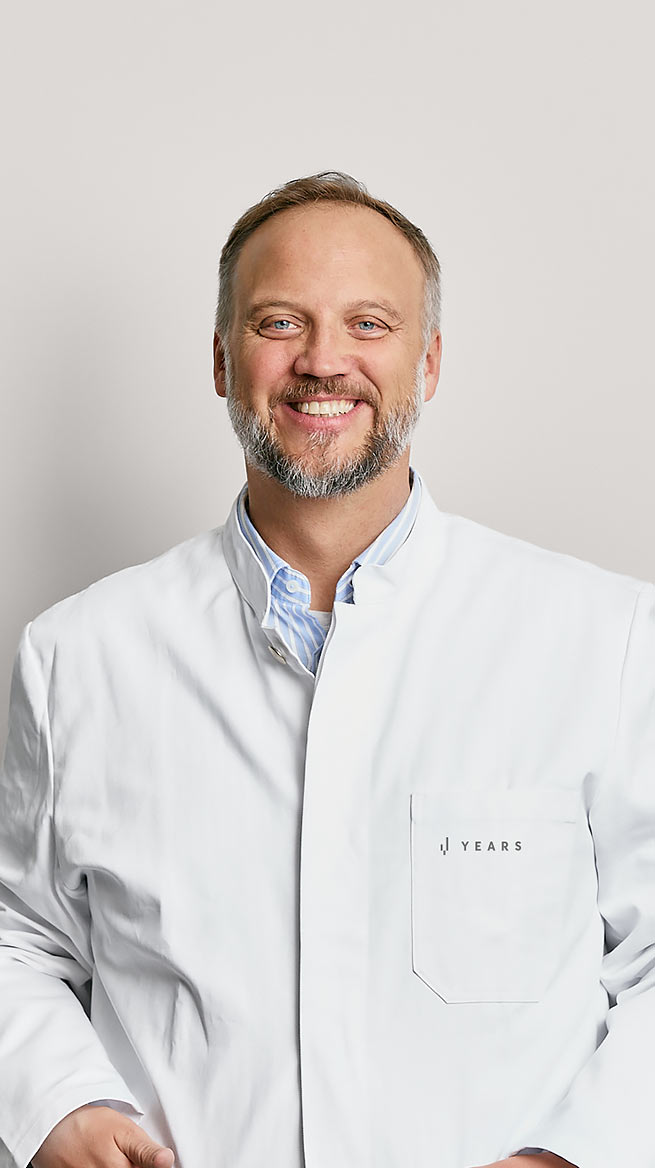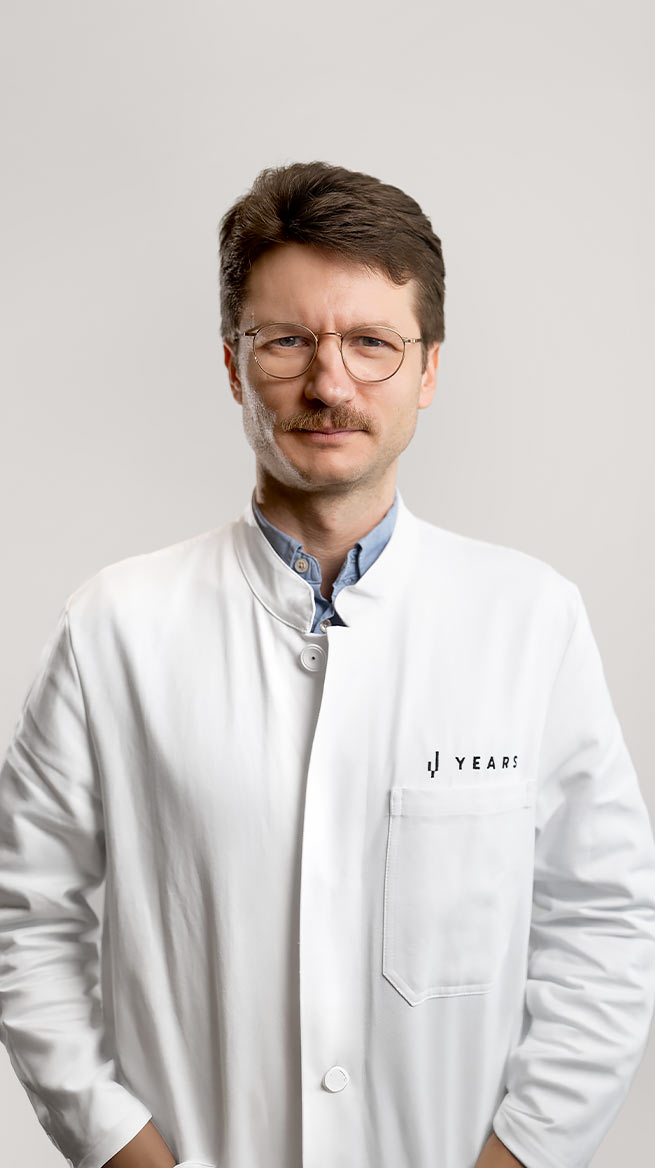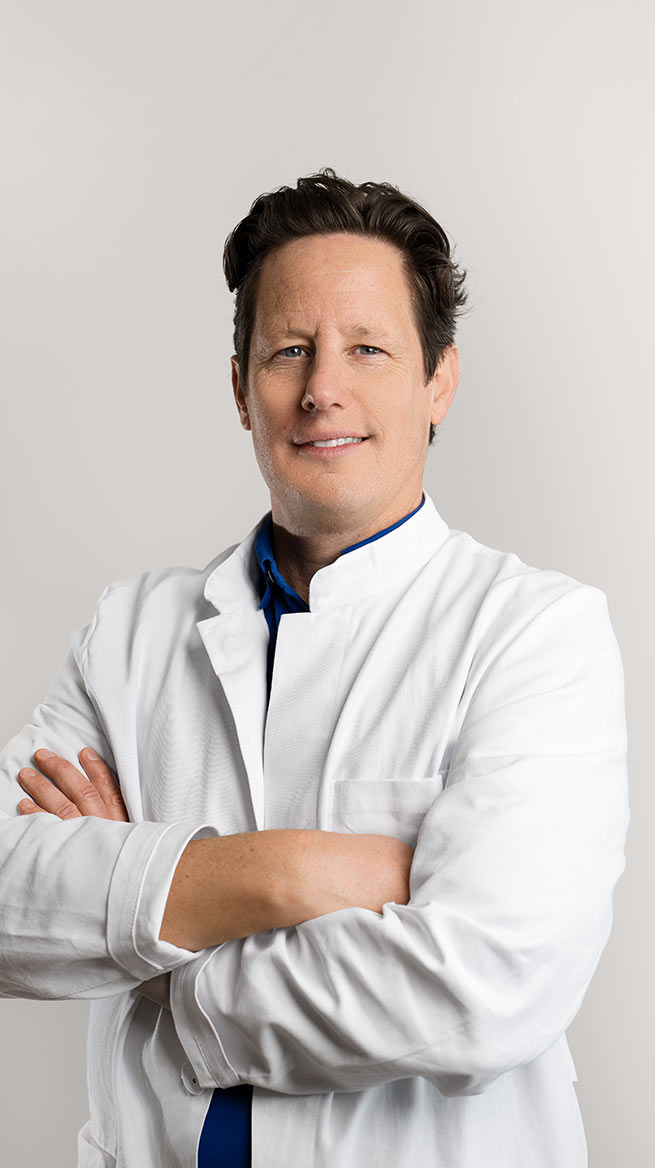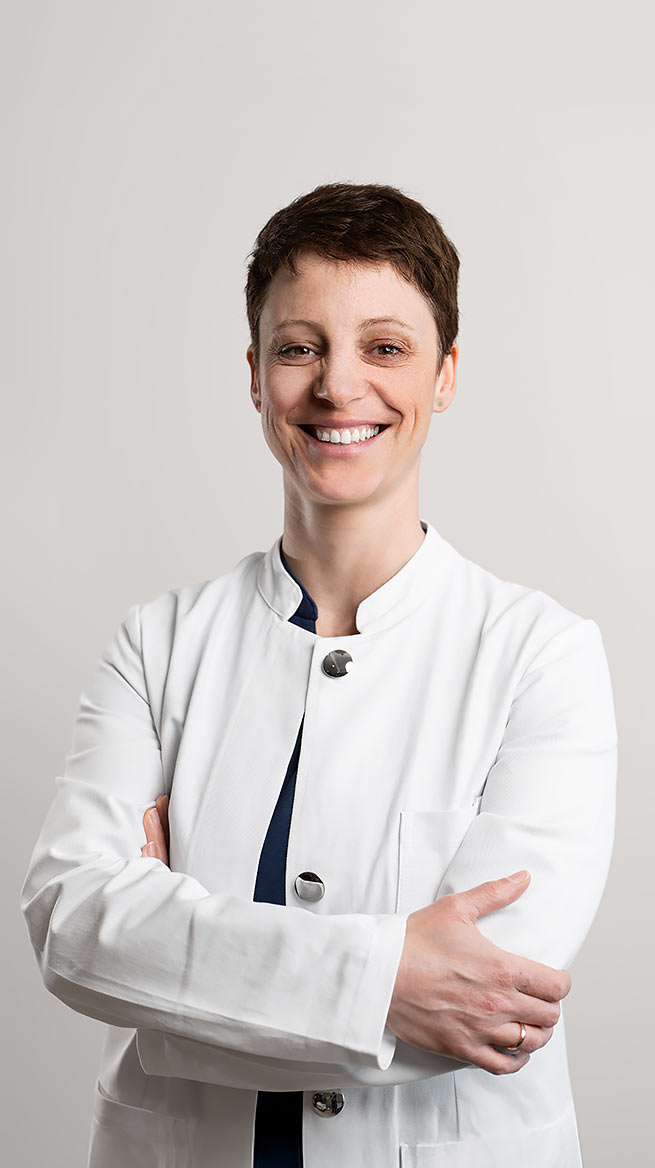
"Modern medicine should prevent disease – not just manage its consequences."
Dr. Jan K. Hennigs is a board-certified internist, pulmonologist and physician-scientist with more than 20 years of experience in research and academic medicine. As Medical Director at YEARS , he leads the clinical and scientific development of YEARS as a health platform that integrates deep longitudinal clinical and molecular phenotyping, AI-assisted data infrastructure and translational research into actionable strategies for early detection and prevention of age-related diseases.
- Board-certified specialist in Internal Medicine and Pulmonology
- Molecular Biologist
- Clinical Investigator / Certified Principal Investigator (ICH-GCP / AMG)
- Head of Research Group ENDomics (UKE)
- Pulmonology / Respiratory Medicine
- Molecular Biology Research
- Clinical Trial Management
- Translational Research
- University Medical Center Hamburg-Eppendorf (UKE)
- Studies in Mumbai / Nashik (India)
- University Medical Center Hamburg-Eppendorf
- Cardiovascular Institute, Stanford University
- DGP Research Award for Basic Science, German Respiratory Society (DGP), 2021
- Teacher of the Year, UKE Hamburg, 2019
- Cournand Comroe Young Investigator Award (Finalist), American Heart Association, 2017
- Clinician Scientist Career Development Award, UKE Hamburg, 2016–2022
- AHA Research Fellowship, American Heart Association, 2016
- CVI Travel Award, Stanford University, 2016
- DFG Research Fellowship, German Research Foundation, 2012–2015
- Gebhard Koch Dissertation Award, Friends and Supporters of UKE, 2009
- UCCH Research Scholarship, Hubertus Wald Tumor Center, 2009
- Graduate Speaker, DFG Research Training Group 336, 2004
- Doctoral Scholarship in Molecular Endocrinology, DFG Research Training Group 336, 2003
Why prevention – and why YEARS?
"In medicine, we praise prevention, yet in a large university hospital, I mostly saw the opposite: patients came in with conditions that had been silently progressing for years. By the time they reached us, we could often only do damage control.
YEARS is a response to that gap. We apply high-resolution diagnostics and data-driven, personalized interventions to move care from reactive to proactive.
For me, prevention means structured, evidence-based medicine that uses big levers first. It’s not a wellness product or “check-up”. It’s a goal-oriented, multidisciplinary medical strategy tailored to an individual’s specific risk profile. Healthy, at-risk, or already ill, there is almost always a way to change the trajectory. That’s what we work on every day, with real-world data, science and clinical depth"
What needs to change in today’s healthcare system?
"Too often, we think of health as something that just 'happens' – good or bad, lucky or not. But it is shaped by measurable risk factors, lived environments, and daily choices. A modern healthcare system should reflect that. It should offer clarity and actionable insight, detect risks early, and intervene before damage appears.
We already have many of the scientific tools and much of the knowledge. What’s missing is a system that consistently uses them to protect health, not just manage disease."
One piece of advice you often give – and try to follow yourself?
"Many people think meaningful change requires big, dramatic steps. But in most cases, the most effective strategy is to start small and stay consistent. Whether it’s nutrition, exercise, sleep or mental health: forming habits matters most.
One simple principle I try to follow myself is to consciously make space for what really matters. Health needs room in our lives, not just in theory but in practice. Even if this means blocking time in your calendar for recovery, reflection or a walk with someone you care about. It may sound simple, but over time it can make a meaningful difference."










